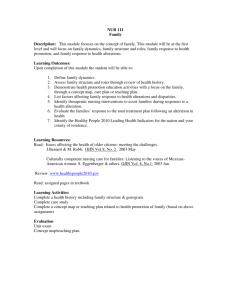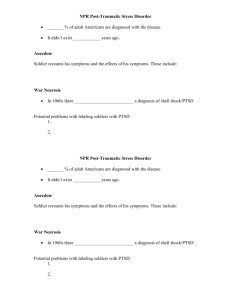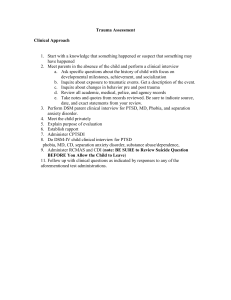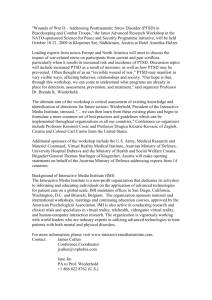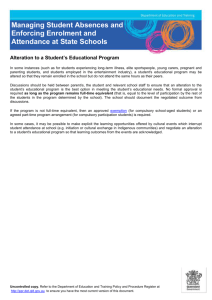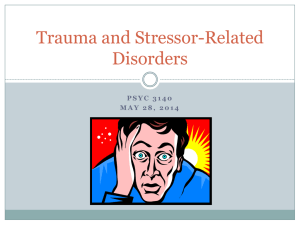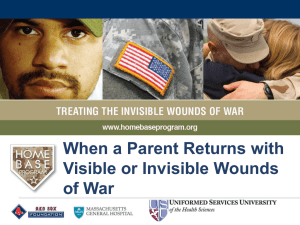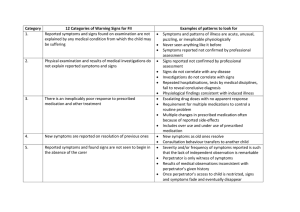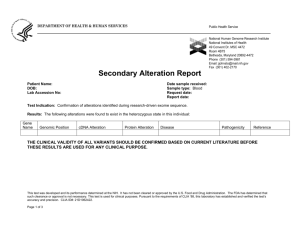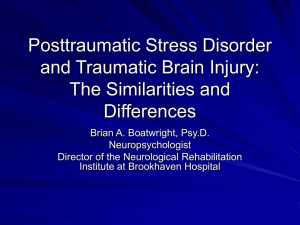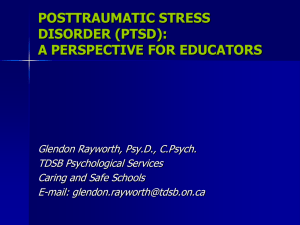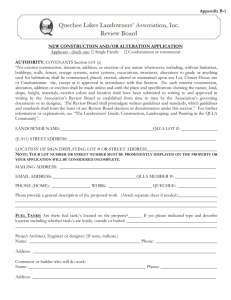Presentation
advertisement
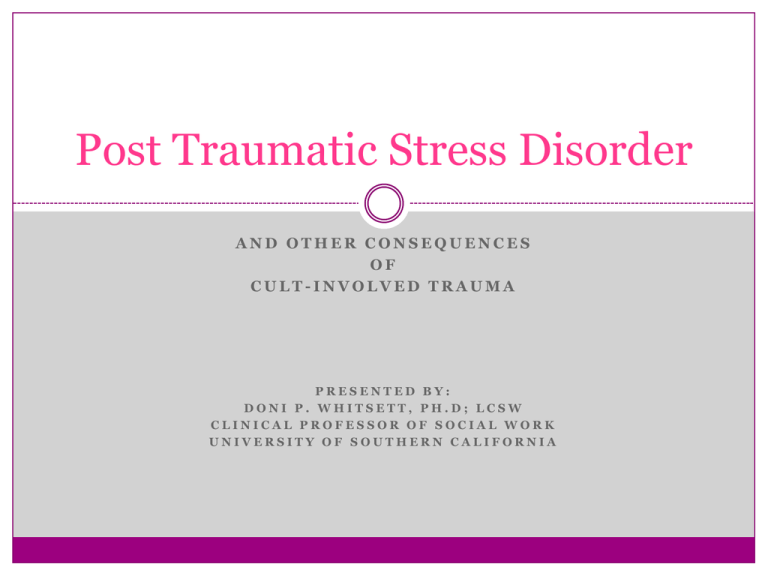
Post Traumatic Stress Disorder AND OTHER CONSEQUENCES OF CULT-INVOLVED TRAUMA PRESENTED BY: DONI P. WHITSETT, PH.D; LCSW CLINICAL PROFESSOR OF SOCIAL WORK UNIVERSITY OF SOUTHERN CALIFORNIA Affect Regulation PTSD as a disorder of affect (emotional) regulation Cornerstone of good mental health Affect dysregulation the basis of mental illness Re-experiencing Avoidance Reminders Hyperarousal THREE PRONGS OF PTSD Hyperarousal Complex PTSD “The overwhelming stress of maltreatment in childhood is associated with adverse influences on not just behavior but also on brain development.” SCHORE, A. (2009) “Early experiences are built into our bodies, creating biological “memories” that shape development, for better or for worse.” (www.developingchild.harvard.edu/library) Complex PTSD Alteration in regulation of affect and impulses a. affect regulation b. modulation of anger c. self-destructive d. suicidal preoccupation e. difficulty modulating sexual involvement f. excessive risk taking Alteration in self-perception a. ineffectiveness b. permanent damage c. guilt and responsibility d. shame e. nobody can understand f. minimizing Alteration in attention or consciousness a. amnesia b. depersonalization c. transient dissociate episodes Alterations in perception of perpetrator a. adopting distorted beliefs b. preoccupation with hurting perpetrator c. idealization of the perpetrator Somatization a. digestive system b. chronic pain c. cardiopulmonary symptoms d. conversion symptoms e. sexual symptoms Alterations in relationships with other a. inability to trust b. victimizing others c. revictimization Source: van der Kolk, B. & Fisler, R. (1994). Childhood abuse and neglect and loss of self-regulation. Bulletin of the Menninger Clinic. 58(2) Alterations in systems of meaning a. despair and hopelessness b. loss of previously sustaining beliefs Affect Regulation Ability to calm oneself down Ability to enliven oneself Mother first acts as psychobiological regulator Brain sprouts axons and dendrites within a secure attachment Baby takes on the self soothing and enlivening functions for herself Brain Development Optimal Brain Development Strong connections up and down between higher and lower cortical regions Thinking + feeling = good judgment The Cult Parent Pre-occupied with cult activities Children hinder their cult-defined goal In child-like position vis a vis cult leader Parents as “middle management” Hebian Axiom Neurons that fire together wire together. Donald Hebb The Stress Response Faced with immediate danger Cortisol and Epinephrine are released HPA Axis Feedback loop Danger is over – return to baseline “Toxic stress caused by significant adversity can produce physiological disruptions that undermine the development of the body stress response systems and affect the architecture of the developing brain ….” (www.developingchild.harvard.edu/library) Effects of Chronic Stress Impaired stress response Hippocampal damage Dissociation Cults practice dissociative techniques Chronic Sympathetic Arousal Sensitization Kindling Hippocampal Cell Death Lewis, Kelly, Allen (2004) Restoring Hope and Trust. Baltimore, MD. Sidran Inst. P.57 GI Tract Anorexia IBS Respiration Skin Headaches Pain Other Emotional Consequences Guilt and Shame Spiritual abuse Morality Self-fulfilling prophesy The spousal relationship Attachments threaten leader Reparation Identification with the aggressor (leader)
